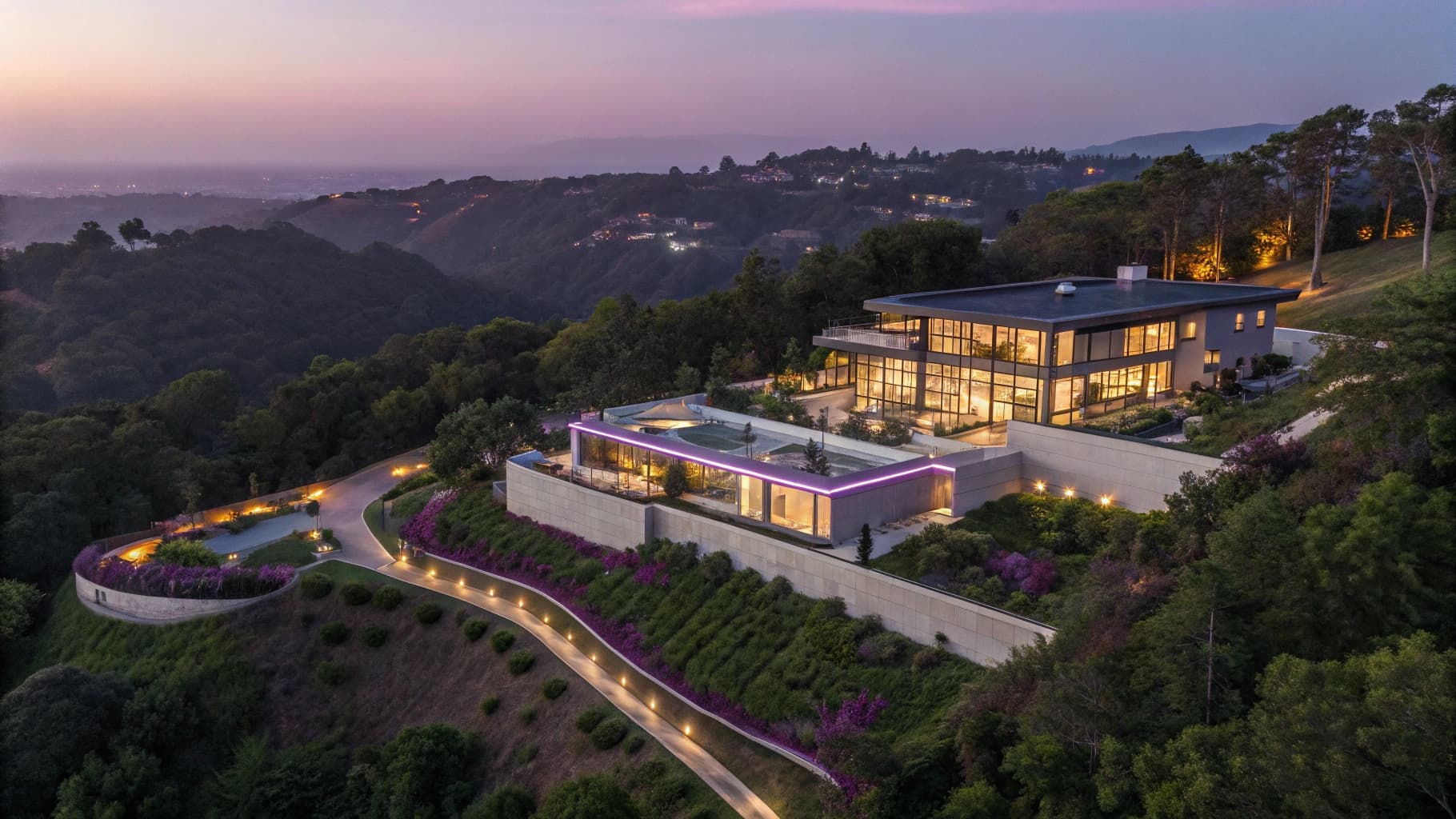In an age where personal privacy is increasingly under siege, the intersection of privacy laws and celebrity mansions has become a focal point of legal discourse and public interest. Celebrity mansions, often sprawling estates located in exclusive neighborhoods, serve as both homes and public spectacles. The allure of these properties is not just in their architectural grandeur or luxurious amenities but also in the lives of the famous individuals who inhabit them.
As public figures, celebrities often find themselves in a precarious position where their right to privacy clashes with the insatiable curiosity of the media and fans. This dynamic has led to the establishment and evolution of privacy laws designed to protect individuals from unwarranted intrusion, particularly in the context of high-profile residences. Privacy laws vary significantly across jurisdictions, but they generally aim to safeguard individuals from unauthorized surveillance, harassment, and the dissemination of personal information.
For celebrities, these laws are particularly crucial as they navigate a world where their every move can be documented and broadcasted to millions. The legal framework surrounding privacy not only influences how celebrities can protect their homes but also shapes the broader cultural understanding of privacy in an era dominated by social media and instant communication. As we delve deeper into this topic, it becomes evident that the implications of privacy laws extend far beyond mere legalities; they touch upon fundamental questions about personal autonomy, public interest, and the ethical responsibilities of the media.
Impact of Privacy Laws on Access to Celebrity Mansions
Legal Protections and Their Impact
For example, California’s Civil Code Section 1708.8 specifically prohibits the use of drones or other devices to capture images or recordings of individuals in their private spaces. This legal protection has made it more challenging for photographers to obtain candid shots of celebrities, reducing the frequency of intrusive encounters. As a result, celebrities are taking a more proactive stance in protecting their privacy, investing in extensive security measures such as high walls, gated entrances, and surveillance systems.
A More Cautious Media Approach
The legal ramifications of violating privacy laws have led to a more cautious among media outlets. With potential lawsuits looming over unauthorized photography or reporting, many publications are now more selective about the content they choose to publish regarding celebrity residences. This shift not only protects the personal lives of celebrities but also fosters a more respectful relationship between public figures and the media.
A New Era of Celebrity Privacy
Ultimately, the changing landscape of privacy has led to a more private and secure environment for celebrities. With legal protections in place and a more cautious media approach, celebrities can now enjoy a greater sense of privacy and security, free from the intrusion of paparazzi and unwanted media attention.
Security Measures and Privacy Laws for Celebrity Mansions
The implementation of privacy laws has necessitated a corresponding increase in security measures for celebrity mansions. High-profile individuals often employ a range of strategies to ensure their safety and maintain their privacy. These measures can include physical barriers such as high fences, security gates, and even armed guards stationed at entry points.
Additionally, many celebrities opt for advanced technology solutions like motion detectors, surveillance cameras, and alarm systems that provide real-time monitoring of their properties. In some cases, celebrities have gone so far as to hire private security firms specializing in protecting high-net-worth individuals. These firms not only provide physical security but also offer consultation on best practices for maintaining privacy in an increasingly intrusive world.
For example, they may advise on how to manage social media presence or how to handle unexpected visitors or paparazzi encounters. The combination of legal protections and robust security measures creates a formidable barrier against potential intrusions, allowing celebrities to enjoy their homes with a greater sense of peace.
Legal Consequences for Violating Privacy Laws at Celebrity Mansions
The legal consequences for violating privacy laws at celebrity mansions can be severe and far-reaching. In many cases, unauthorized intrusion can lead to civil lawsuits where celebrities seek damages for emotional distress or invasion of privacy. For instance, if a paparazzo trespasses onto private property to capture images without consent, the celebrity may file a lawsuit under applicable privacy laws, potentially resulting in significant financial penalties for the offender.
Moreover, criminal charges can also arise from egregious violations of privacy laws. In California, for example, certain actions such as stalking or harassment can lead to criminal prosecution, which may result in fines or imprisonment for the perpetrator. The legal framework surrounding these issues serves as a deterrent against invasive behavior while simultaneously empowering celebrities to take action when their rights are infringed upon.
This legal recourse not only protects individual celebrities but also sets a precedent that reinforces the importance of respecting personal boundaries in an era where such boundaries are often blurred.
Influence of Privacy Laws on Paparazzi and Media Coverage of Celebrity Mansions
Privacy laws have had a profound impact on how paparazzi operate and how media coverage is conducted regarding celebrity mansions. With stricter regulations in place, photographers are now more cautious about how they approach their work. The fear of legal repercussions has led many paparazzi to adopt more ethical practices when it comes to capturing images of celebrities at home.
For instance, some photographers may choose to focus on public appearances rather than attempting to invade private spaces. Media outlets have also adjusted their coverage strategies in response to these legal changes. Many publications now prioritize obtaining consent from celebrities before publishing images taken on private property or featuring their homes in articles.
This shift reflects a growing recognition within the industry that respecting privacy is not only a legal obligation but also an ethical one. As a result, there is an increasing emphasis on responsible journalism that balances public interest with individual rights.
Challenges of Maintaining Privacy in a Celebrity Mansion
The Rise of Social Media Complicates Privacy
The rise of social media has further complicated the landscape of privacy for celebrities. Platforms like Instagram and Twitter allow public figures to share aspects of their lives with fans but also expose them to potential breaches of privacy. A post can inadvertently reveal details about a celebrity’s home or daily routine, making it easier for intruders to invade their space.
The Paradox of Public and Private Life
This paradox highlights the ongoing struggle between maintaining a public persona while safeguarding personal boundaries. Celebrities must navigate the fine line between sharing their lives with their fans and protecting their privacy.
A Delicate Balance
Ultimately, maintaining privacy in a celebrity’s life requires a delicate balance between being open with their fans and protecting their personal space. It is a challenge that requires careful consideration and attention to detail to avoid unwanted attention and potential breaches of privacy.
Celebrity Perspectives on Privacy Laws and Their Mansions
Celebrities often have varied perspectives on privacy laws and how they relate to their mansions. Some view these laws as essential tools for protecting their personal lives from relentless scrutiny. For instance, actors like Jennifer Aniston have been vocal about their desire for privacy and have actively supported legislation aimed at curbing invasive paparazzi practices.
Aniston’s advocacy underscores a broader sentiment among many celebrities who feel that their right to privacy should be respected regardless of their public status. Conversely, some celebrities embrace their fame and the accompanying attention that comes with it. They may see their mansions as extensions of their public personas rather than private sanctuaries.
This perspective can lead to a more open relationship with fans and media, where they willingly share glimpses into their lives through social media or reality television shows. However, even those who are more open about their lives often express frustration when boundaries are crossed or when they feel that their safety is compromised.
Future Trends in Privacy Laws and Celebrity Mansion Ownership
As society continues to grapple with issues surrounding privacy in an increasingly digital world, future trends in privacy laws will likely evolve in response to emerging technologies and cultural shifts. One potential trend is the introduction of more comprehensive legislation aimed at protecting individuals from digital surveillance and data breaches. As technology advances, so too do the methods by which personal information can be accessed or exploited.
Additionally, there may be a growing emphasis on international standards for privacy protection that transcends national borders. As celebrities often operate on a global stage, having consistent regulations could help mitigate issues related to cross-border invasions of privacy. Furthermore, as public awareness around these issues increases, there may be greater advocacy for stronger protections that reflect societal values regarding personal autonomy and respect for individual rights.
In conclusion, the interplay between privacy laws and celebrity mansions is complex and multifaceted. As legal frameworks evolve alongside societal expectations, both celebrities and the media will need to navigate this landscape with care and consideration for one another’s rights and responsibilities.
FAQs
What are privacy laws?
Privacy laws are regulations that govern the collection, use, and disclosure of personal information. These laws are designed to protect individuals’ privacy and prevent unauthorized access to their personal data.
How do privacy laws affect celebrity mansions?
Privacy laws can impact celebrity mansions in several ways. For example, these laws may restrict the publication of photographs or videos taken on private property without the owner’s consent. They may also limit the dissemination of personal information about the celebrity homeowners.
Do privacy laws vary by location?
Yes, privacy laws can vary significantly by location. Different countries, states, and municipalities may have their own specific privacy regulations that apply to celebrity mansions within their jurisdiction.
What are the potential consequences of violating privacy laws at a celebrity mansion?
Violating privacy laws at a celebrity mansion can result in legal consequences such as fines, civil lawsuits, and even criminal charges. In some cases, individuals or media outlets may be required to pay damages to the affected celebrity.
How do celebrities protect their privacy at their mansions?
Celebrities may employ various measures to protect their privacy at their mansions, such as installing security systems, hiring private security personnel, and implementing strict access controls. Additionally, they may seek legal recourse against individuals or media outlets that violate their privacy rights.

